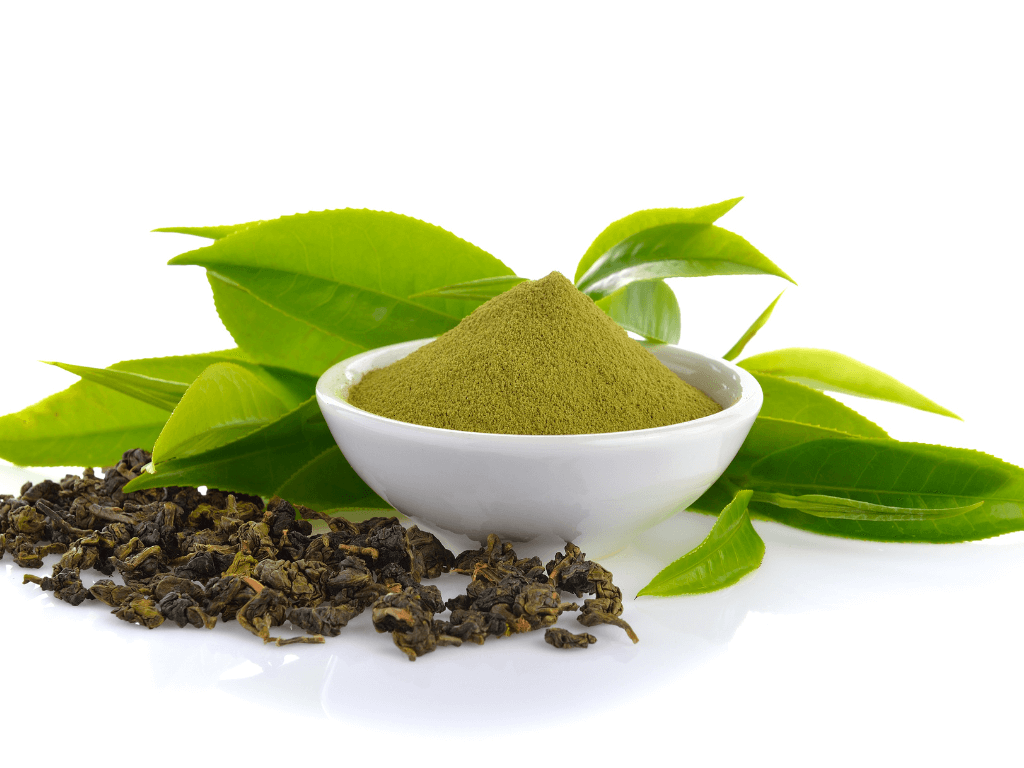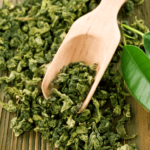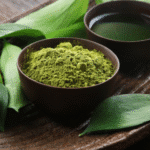Does Green Tea Have Caffeine? Benefits, Risks & Tips to Reduce It

Welcome to our guide on green tea and caffeine. If you're a fan of green tea or just getting started, you may be wondering whether it contains caffeine and how it can affect your body. The answer is yes—green tea does contain caffeine, but in varying amounts depending on the type and how it's prepared.
In this article, you'll learn about the origins of caffeine in green tea, how much it typically contains, the benefits of caffeine-free green tea, tips for reducing caffeine levels, and whether it's safe to drink green tea with caffeine. So, grab a cup and let’s explore everything you need to know about caffeine in green tea.
What Is the Origin of Caffeine in Green Tea?
Caffeine occurs naturally in the leaves of the Camellia sinensis plant, which is used to produce all true teas, including green tea. Plants produce caffeine as a natural defense against insects and to reduce competition from nearby plants.
Factors that influence caffeine content include:
- The specific variety of the tea plant
- Growing conditions and altitude
- The harvest season
- The processing and preparation method
Generally, younger tea leaves contain more caffeine than mature leaves. Additionally, teas grown at higher elevations often have higher caffeine content.
How Much Caffeine Does Green Tea Contain?
Green tea contains less caffeine than coffee but more than some herbal teas. On average, one 8-ounce cup of green tea contains:
- 25 to 50 mg of caffeine
In comparison:
- Coffee (8 oz) typically contains 95 to 200 mg of caffeine
Factors that affect caffeine levels in green tea:
- Type of green tea: Matcha tends to have higher caffeine content.
- Brewing time: The longer you steep it, the more caffeine is extracted.
- Water temperature: Hotter water can draw out more caffeine.
If you're sensitive to caffeine or trying to limit your intake, opt for shorter brewing times or switch to decaffeinated green tea.
Benefits of Caffeine-Free Green Tea
Caffeine-free (decaffeinated) green tea still offers many of the same health-promoting compounds as regular green tea:
- Antioxidants: Help protect your cells from damage caused by free radicals.
- L-theanine: May promote relaxation and mental clarity without causing drowsiness.
- Heart health: Some studies suggest green tea may support healthy blood pressure and cholesterol levels.
- Improved digestion: Gentle on the stomach and beneficial for gut health.
Caffeine-free green tea is also a great option for:
- Evening or nighttime consumption
- Individuals sensitive to stimulants
- Those managing anxiety or sleep disorders
How to Reduce Caffeine in Green Tea
Here are a few ways to enjoy green tea with less caffeine:
- Steep for less time: Shorter steeping extracts less caffeine.
- Use cooler water: Brew with water at around 160°F (70°C) instead of boiling.
- Choose decaffeinated green tea: Look for reputable brands that preserve the tea’s natural antioxidants.
- Blend with herbs: Mix green tea with naturally caffeine-free herbs like chamomile or peppermint.
- Try other teas: White tea or herbal teas usually contain less or no caffeine at all.
Is It Safe to Drink Green Tea with Caffeine?
For most healthy adults, moderate caffeine intake is safe. Green tea offers a balanced option with a lower caffeine content than coffee.
Benefits of moderate caffeine intake from green tea include:
- Enhanced focus and alertness
- Increased fat oxidation and metabolism
- Improved exercise performance
Potential side effects of excessive caffeine include:
- Jitters or restlessness
- Sleep disturbances
- Headaches or digestive discomfort
To stay within safe limits, consider:
- Keeping daily caffeine intake under 400 mg (roughly 6–8 cups of green tea)
- Listening to your body and adjusting based on your sensitivity
- Avoiding green tea late in the day if it affects your sleep
Conclusion
Green tea does contain caffeine, but typically in moderate amounts that are well-tolerated by most people. If you're sensitive to caffeine, you can reduce its impact through shorter steeping times, cooler water, or choosing a decaffeinated variety.
Whether you enjoy regular or caffeine-free green tea, it remains a healthful beverage packed with antioxidants and beneficial compounds. Drink mindfully, and enjoy the many wellness perks that green tea has to offer.
Leave a Reply




Related Posts